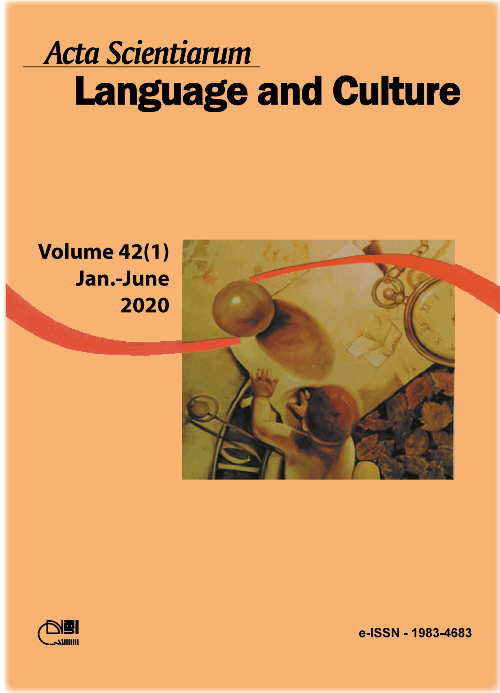Under the postcolonial sign: character figuration in Chinua Achebe’s No longer at ease
Abstract
Nigerian writer Chinua Achebe`s novel No longer at ease sharply focuses questions related to post-coloniality, which operate, in the novel, as a marked element in character constitution. Character figuration is, as defined by Reis (2018), the rhetorical, fictional and acting devices which outline the fictional figure; in No longer at ease these devices deal with the post-colonial element through cultural dissents between the old metropolis, England, and the former colony, Niger, and through tensions between tradition and modernity as well. Therefore, we propose an analysis of character constitution through the optics of post-colonial studies, considering cultural differences, colonialist heritage and character figuration. Theoretical foundation for the implications of post-coloniality in the novel are sought in Bonnici (2012); reference on character construction is based on Forster (1962), Bordini (2006), Brait (2017), and Reis (2018). The analysis developed in articulation with this theoretical framework allows for the conclusion that the novel central character is constituted by the duality triggered by his existential conflicts, and, very especially, the contrast between who he is and who he intended to be in the post-colonial context.
Downloads
Metrics
DECLARATION OF ORIGINALITY AND COPYRIGHTS
I Declare that current article is original and has not been submitted for publication, in part or in whole, to any other national or international journal.
The copyrights belong exclusively to the authors. Published content is licensed under Creative Commons Attribution 4.0 (CC BY 4.0) guidelines, which allows sharing (copy and distribution of the material in any medium or format) and adaptation (remix, transform, and build upon the material) for any purpose, even commercially, under the terms of attribution.
Read this link for further information on how to use CC BY 4.0 properly.




















6.png)









